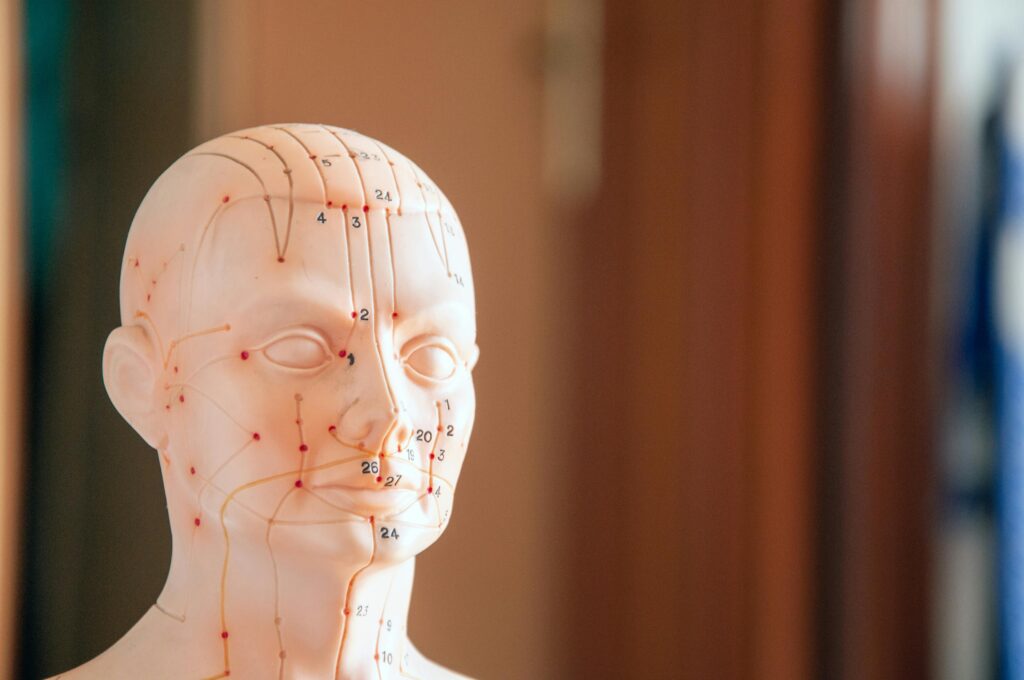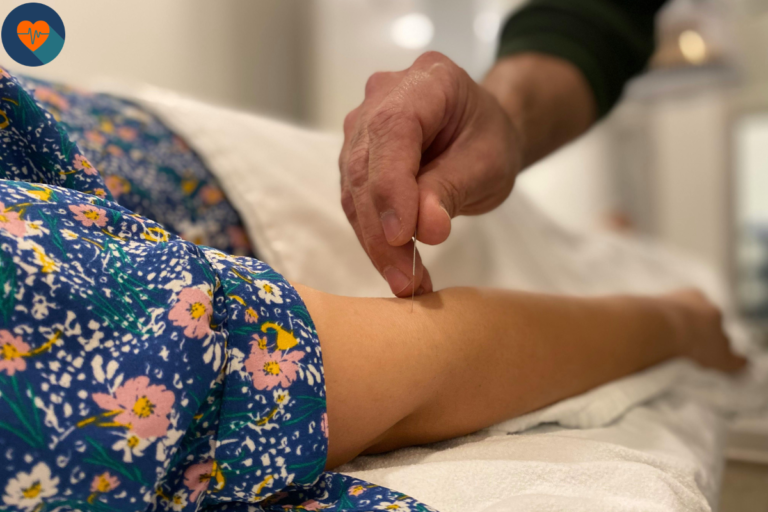Chronic fatigue syndrome (ME/CFS) is a complex, debilitating condition that can greatly affect quality of life. While there is no standard treatment, individuals with ME/CFS may find relief through various means.
These include lifestyle changes, stress management, therapy, and medications. Emerging as a promising natural option is acupuncture. It is a traditional Chinese medicine practice that aims to restore energy levels.
Acupuncture also reduces symptoms and improves overall well-being for those suffering from chronic fatigue.
Acupuncture for chronic fatigue
Table of Contents

This comprehensive guide explores how acupuncture can potentially benefit individuals with ME/CFS. It delves into the science behind the practice and the traditional Chinese medicine approach.
It also explains how it may alleviate common symptoms. Additionally, you’ll discover how to incorporate acupuncture into a holistic treatment plan. You’ll also learn essential lifestyle modifications and self-care strategies to support your journey to better health.
Understanding Chronic Fatigue Syndrome (ME/CFS)
Myalgic Encephalomyelitis, also known as Chronic Fatigue Syndrome (ME/CFS), is a complex condition. It causes severe, lasting fatigue for at least six months. This fatigue is often paired with other symptoms like post-exertional malaise, unrefreshing sleep, and cognitive impairment.
Common Symptoms and Diagnosis
Diagnosing ME/CFS is hard because there’s no single test. Doctors must look at the patient’s history, symptoms, and physical exam. Common symptoms include:
- Persistent, unexplained fatigue that doesn’t get better with rest
- Post-exertional malaise, where activity makes symptoms worse
- Unrefreshing sleep and trouble keeping a regular sleep schedule
- Cognitive impairment, like trouble concentrating or processing info
- Muscle pain, joint pain, and headaches
Impact on Daily Life
ME/CFS can greatly affect daily life. It often leads to less activity and social isolation. Patients may find it hard to keep up with their usual routines and responsibilities. They might need to adjust their work, school, or family commitments.
Current Medical Understanding
The exact cause of ME/CFS is still unknown. Research points to viral infections, immune system changes, or chronic stress as possible triggers. There’s no cure yet. But, the National Institute for Health and Care Excellence (NICE) suggests tailored treatment plans. These plans aim to manage symptoms and improve quality of life.
The Science Behind Acupuncture for Chronic Fatigue
Acupuncture is an ancient technique rooted in Traditional Chinese Medicine. It involves placing thin needles into specific acupoints on the body. This technique is thought to help by balancing the flow of qi, or life energy, in the body’s meridian systems. For those with Chronic Fatigue Syndrome (ME/CFS), acupuncture might be a natural way to find relief.
Acupuncture may help ME/CFS by regulating the nervous system. Research shows it can adjust the autonomic nervous system’s activity. This system is key for energy, sleep, and pain. By balancing it, acupuncture could reduce fatigue, improve sleep, and lessen chronic pain.
Acupuncture is also linked to the release of endorphins, our body’s natural happiness chemicals. This release can calm the mind and body. It might help lower stress and boost mood, both important for managing ME/CFS symptoms.
Early studies suggest acupuncture can also improve blood flow and circulation. This could help oxygen and nutrients reach tissues better. This might support the body’s energy production and recovery, helping with chronic fatigue.
Though the science behind acupuncture for ME/CFS is still growing, the current evidence is promising. This therapy might offer a natural way to tackle the complex challenges of ME/CFS. As research continues, acupuncture’s role in treating chronic fatigue will be further explored.

Traditional Chinese Medicine Approach to Fatigue
Traditional Chinese Medicine (TCM) sees chronic fatigue as an energy imbalance. The idea of Qi, or vital energy, is key. ME/CFS is linked to Qi deficiency, treated with acupuncture and herbs. TCM aims to balance energy by stimulating specific points along meridians.
Qi Deficiency and Energy Balance
In TCM, Qi deficiency is a main cause of chronic fatigue. When the body’s Qi is low or out of balance, it can cause tiredness and lack of energy. TCM practitioners try to find and fix the Qi imbalance with a holistic approach.
Meridian Systems and Energy Flow
The TCM view of chronic fatigue focuses on the meridian system. Meridians are channels for Qi flow. By stimulating acupoints, TCM aims to improve Qi flow and balance the yin-yang in the body.
Studies suggest Traditional Chinese mind-body exercises like Qigong and Tai Chi help with CFS. These exercises combine breathing, mental calm, and movement. They can reduce fatigue, depression, and anxiety, and improve sleep and mental function in CFS patients.

Benefits of Acupuncture for ME/CFS Symptoms
Acupuncture may help those with Myalgic Encephalomyelitis/Chronic Fatigue Syndrome (ME/CFS). It can reduce fatigue, offering relief to those suffering. This ancient Chinese therapy has shown promise in studies.
Acupuncture also helps manage pain from ME/CFS. Patients often see a decrease in muscle aches and headaches. It tackles secondary symptoms like sleep issues and cognitive problems too.
- Fatigue Reduction: Acupuncture boosts the immune system and energy, easing ME/CFS fatigue.
- Pain Management: It reduces inflammation and pain, helping with muscle and joint aches.
- Sleep Improvement: Acupuncture improves sleep quality, which is often disrupted in ME/CFS patients.
- Cognitive Function: Some notice better memory and concentration after acupuncture.
While results vary, many find acupuncture helpful in managing ME/CFS. It’s a holistic approach that targets the condition’s root causes, not just symptoms.

Acupuncture Treatment Protocol and Sessions
If you’re thinking about acupuncture for chronic fatigue, you’ll find the process clear and focused on your needs. The first acupuncture consultation is all about checking your symptoms, health history, and current health status.
Initial Assessment Process
In the initial assessment, your acupuncturist will ask about your fatigue, sleep, digestion, and other health issues. This helps them create a treatment plan that gets to the heart of your problem.
Treatment Frequency and Duration
For chronic fatigue syndrome (ME/CFS), acupuncture starts with 1-2 sessions a week for weeks. Each session lasts 30-60 minutes. During this time, thin needles are carefully placed in specific points on your body.
What to Expect During Sessions
- The needle insertion is usually painless, but you might feel a mild, short-lived sensation as the needles are put in.
- The needles stay in for 15-30 minutes, letting your body react to the gentle stimulation of the acupuncture points.
- Most people feel relaxed and refreshed after an acupuncture session, noticing a drop in fatigue and ME/CFS symptoms.
A typical acupuncture treatment for chronic fatigue can last months. Sessions might decrease as your symptoms get better. Your acupuncturist will keep a close eye on your progress and tweak the treatment plan as needed.
Combining Acupuncture with Other Natural Treatments
Managing chronic fatigue syndrome (ME/CFS) is easier with an integrative approach. This method combines acupuncture with other natural treatments. Acupuncture, a key part of Traditional Chinese Medicine, works well with herbal medicine, dietary changes, and mind-body practices. Together, they offer a more effective solution.
Herbal Medicine is often used with acupuncture to boost treatment effects. Chinese herbs, made from plants, minerals, and animal products, are tailored to each person’s needs. They help balance the body and promote healing, addressing the root cause of chronic fatigue.
Dietary Changes that focus on anti-inflammatory foods support healing. Eating nutrient-dense, whole foods can reduce inflammation and boost energy. This helps the body detoxify naturally.
- Emphasize foods rich in antioxidants, such as leafy greens, berries, and fatty fish
- Reduce consumption of processed, high-sugar, and inflammatory foods
- Stay hydrated and consider incorporating herbal teas or infusions
Mind-Body Practices like tai chi, qigong, or meditation complement acupuncture. They promote relaxation, reduce stress, and improve energy flow. These practices help manage the mental and emotional aspects of chronic fatigue, enhancing acupuncture’s physical benefits.
Using an integrative approach can help you manage ME/CFS better. It combines acupuncture with other natural treatments. Working with a healthcare provider who specializes in integrative medicine can help create a personalized treatment plan. This plan supports your journey towards better health.
Lifestyle Modifications and Self-Care Strategies
Managing Chronic Fatigue Syndrome (ME/CFS) is more than just acupuncture. Making lifestyle changes and practicing self-care can greatly help. Let’s explore some key strategies to consider.
Sleep Hygiene Tips
For ME/CFS patients, a regular sleep schedule is key. Try to go to bed and wake up at the same time every day. Make your bedroom cool, dark, and quiet for better sleep.
Avoid screens and stimulating activities before bedtime. Try gentle yoga or meditation to help you relax and sleep better.
Energy Conservation Techniques
Effectively managing your energy is crucial to prevent worsening symptoms. Break tasks into smaller steps, rest frequently, and prioritize the most important tasks first.
Don’t do too much. Save energy for what really matters.Allow others to assist with tasks you don’t need to handle yourself.
Stress Management Methods
Stress can make ME/CFS symptoms worse. Engage in relaxation methods such as deep breathing, meditation, or yoga. Find calm activities like reading or listening to music.
Speaking with friends, family, or a therapist can offer extra support.They can offer support and help you manage stress and feelings.
Remember, everyone with ME/CFS is different. Work with your healthcare provider to create a self-care plan that fits you. By making these lifestyle changes and practicing self-care, you can improve your well-being and support your acupuncture treatment.
Managing Treatment Expectations and Progress
Managing chronic conditions like Chronic Fatigue Syndrome (ME/CFS) means setting realistic treatment goals. Some may feel better right away, while others might need more time. It’s important to be patient and keep going.
Tracking your symptoms and energy is key to seeing how well acupuncture works. Notice any changes in fatigue, pain, sleep, and overall health. Sharing this with your acupuncturist and doctor helps them fine-tune your treatment.
Talking regularly with your acupuncturist is vital. You can discuss your goals, symptoms, and progress. This way, you and your acupuncturist can work together to meet your needs.
The path to wellness is slow, but acupuncture can help. Focus on your goals, track your progress, and keep in touch with your acupuncturist. This will help you find natural relief and improve your life.
Improvement times vary, but staying patient and persistent is crucial. Working with your acupuncturist and healthcare team helps you manage your symptoms effectively.
Conclusion
Acupuncture is a natural way to help people with chronic fatigue syndrome. It’s not a cure, but it can be a big help.It focuses on the whole person, rather than just the symptoms.
Further research is required to gain a complete understanding of how acupuncture works. But, it’s worth trying as part of a bigger plan to feel better. Always talk to a doctor before starting acupuncture.
Acupuncture is tailored to each person’s needs. It can help with many symptoms, like feeling very tired. More studies might show it’s even more effective.
By exploring acupuncture, you’re taking a step toward improving your well-being. It’s part of a bigger plan that includes changing your lifestyle and managing stress. Working with your healthcare team is key.
FAQ
What is chronic fatigue syndrome (ME/CFS) and how is it diagnosed?
ME/CFS is a long-term illness that causes severe fatigue. It lasts at least six months. Symptoms include post-exertional malaise, unrefreshing sleep, and cognitive impairment. Since there’s no specific test, diagnosis often involves ruling out other causes.
How does ME/CFS impact daily life?
ME/CFS can make daily tasks hard. It often leads to less activity and feeling isolated. The condition can make it tough to work, take care of the home, and keep social connections.
What are the potential benefits of acupuncture for chronic fatigue syndrome?
Research shows acupuncture may lessen fatigue, improve sleep, and reduce pain. It can also help with cognitive function. Acupuncture’s holistic approach may also help with secondary symptoms like headaches and muscle tension.
How does Traditional Chinese Medicine (TCM) view chronic fatigue?
TCM sees chronic fatigue as a Qi deficiency.Acupuncture and herbal treatments are designed to restore balance.They do this by stimulating specific acupoints along meridians, believed to be energy pathways in the body.
What does a typical acupuncture treatment protocol for ME/CFS involve?
Treatment starts with assessing symptoms and health. It often begins with 1-2 sessions a week for weeks. Each session is 30-60 minutes. Thin needles are placed in specific points and left for 15-30 minutes.
Can acupuncture be combined with other natural treatments for chronic fatigue syndrome?
Yes, acupuncture can be used with other natural treatments. This includes Chinese herbal medicine, dietary changes, and mind-body practices like tai chi or qigong. An integrative approach, guided by healthcare professionals, can offer a comprehensive treatment.
What lifestyle modifications are important for managing ME/CFS?
Important lifestyle changes include better sleep hygiene and energy conservation. Stress management through deep breathing, meditation, or gentle yoga is also key. These self-care strategies can support acupuncture treatment and overall well-being.
What should patients consider when managing expectations for acupuncture treatment?
Setting realistic expectations is crucial. Progress with acupuncture may be slow and different for everyone. Tracking symptoms and energy, communicating with healthcare providers, and being patient are important. This aids in effectively managing the chronic condition.
For readers interested in natural and holistic approaches to wellness, our Alternative Health section offers a range of articles on topics from herbal remedies to integrative therapies. Explore more to support your health journey with evidence-based insights.

